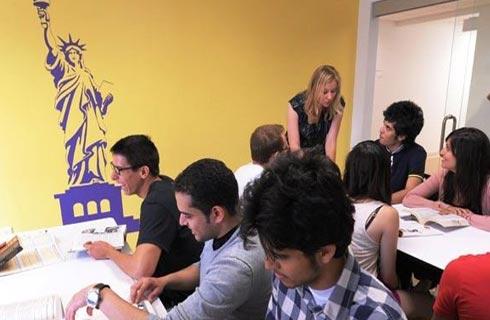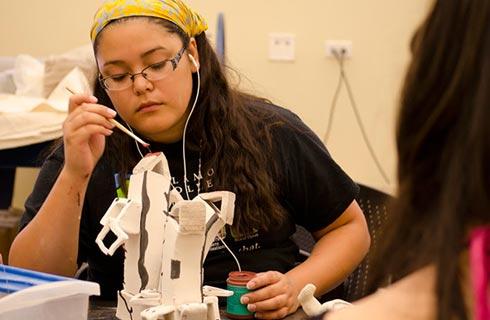咨询理学硕士-临床心理健康咨询
Master of Science in Counseling - Clinical Mental Health Counseling

学历文凭
Masters Degree

专业院系
College of Education

开学时间

课程时长

课程学费

国际学生入学条件
Baccalaureate Degree: The applicant must provide an official transcript showing that a bachelor’s degree was awarded by an accredited college or university. If you are a UofM undergraduate student applying to Graduate School at UofM, you do not need to request that an official transcript be sent to Graduate Admissions. This office has access to your transcript. In addition, transcripts from any other college or university attended may be requested. Only transcripts received directly from an issuing institution are considered official. Personal copies are not acceptable as official documents.
GPA: The applicant must have earned an acceptable grade point average, typically a minimum of 2.5 on a scale of 4.0, but departments may make exceptions for students whose overall GPA does not adequately reflect their ability to succeed in their chosen field.
English proficiency test scores accepted by the University:
- Duolingo English Test-110 or higher on the overall score.
- TOEFL (Test of English as a Foreign Language) 550 or higher on the paper version, 80 or higher on the internet-based test
- IELTS (International English Language Testing System)- 6.5 or higher
- PTE (Pearson Test of English) - 59 or higher
IDP—雅思考试联合主办方

雅思考试总分
6.0
- 雅思总分:6
- 托福网考总分:79
- 托福笔试总分:550
- 其他语言考试:PTE (Pearson Test of English) - 53 or higher
CRICOS代码:
申请截止日期: 请与IDP联系 以获取详细信息。
课程简介
The Master’s degree programs in Counseling prepare entry level counseling professionals with a broad knowledge base in fundamental socialbehavioral science (human development, learning and cognition, personality theory, and emerging research on visible ethnic populations and gender differences), counseling and helping skills (individual and group counseling, and assessment), research and evaluation tools, and professional identity, role and function. The concentrations in Clinical Mental Health Counseling and School Counseling are accredited by the Council for the Accreditation of Counseling and Related Educational Programs (CACREP). The Vocational Rehabilitation Counseling concentration is accredited by the Council of Rehabilitation Counseling (CORE).<br><br>Program objectives are: (1) comprehension of concepts and theories underlying the profession of counseling; (2) ability to collect, analyze, and interpret individual and group data, and to generate and test hypothesis related to human behavior; (3) ability to effectively counsel in both individual and group settings: (4) ability to formulate, implement, and evaluate appropriate counseling programs and interventions; (5) ability to understand and demonstrate ethical behavior and the legal and ethical implications of that behavior; and (6) development of sensitivity and understanding of the needs of persons who are culturally different, including the ability to (a) examine attitudes and myths regarding the culturally different client and (b) the sociopolitical forces impacting the culturally different client.
相关申请
 预科
预科 奖学金
奖学金 实习机会
实习机会 在校学习
在校学习 跨境学习
跨境学习 校园授课-线上开始
校园授课-线上开始 在线/远程学习
在线/远程学习
开学时间&学费
学费信息仅供参考,请与IDP联系以获取详细信息
| 开学时间 | 时长 | 学费 | 地点 |
|---|
本校相关课程
其他相关课程

教育助理文凭-特殊需求支持
 尼亚加拉学院
尼亚加拉学院学历文凭
Bachelor Degree
开学日期
课程费用总额


艺术教育哲学博士
 西蒙菲莎大学
西蒙菲莎大学学历文凭
Ph.D.
开学日期
课程费用总额


艺术教育哲学博士
 康考迪亚大学
康考迪亚大学学历文凭
Ph.D.
开学日期
课程费用总额


文学硕士-艺术教育
 康考迪亚大学
康考迪亚大学学历文凭
Masters Degree
开学日期
课程费用总额


成人教育证书
 康考迪亚大学
康考迪亚大学学历文凭
Bachelor Degree
开学日期
课程费用总额


体育学学士
 温哥华岛大学
温哥华岛大学学历文凭
Bachelor Degree
开学日期
课程费用总额










 美国
美国






